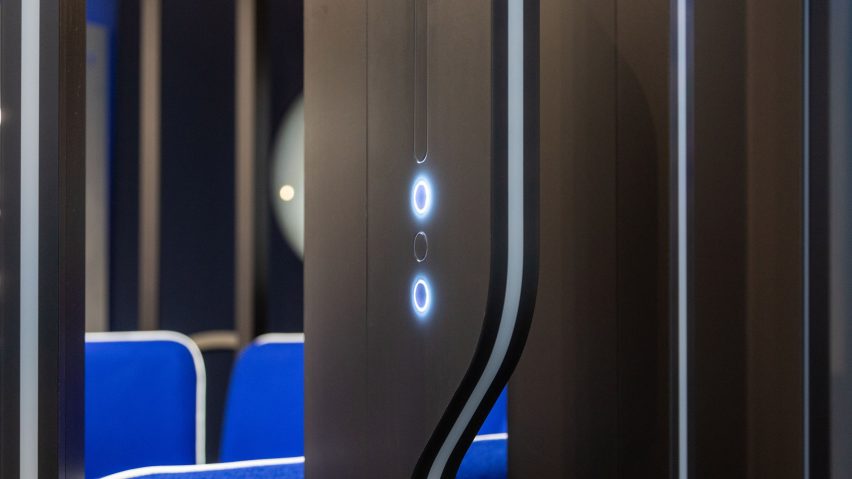
Rehau envisions alternative living methods inside the Future Apartment
Dezeen promotion: German plastics manufacturer Rehau has teamed up with Ippolito Fleitz Group to imagine what an apartment of the future will look like.
The Future Apartment has been collaboratively designed by Rehau and Ippolito Fleitz Group to "offer memorable experiences and technical insights beyond the standard apartment".
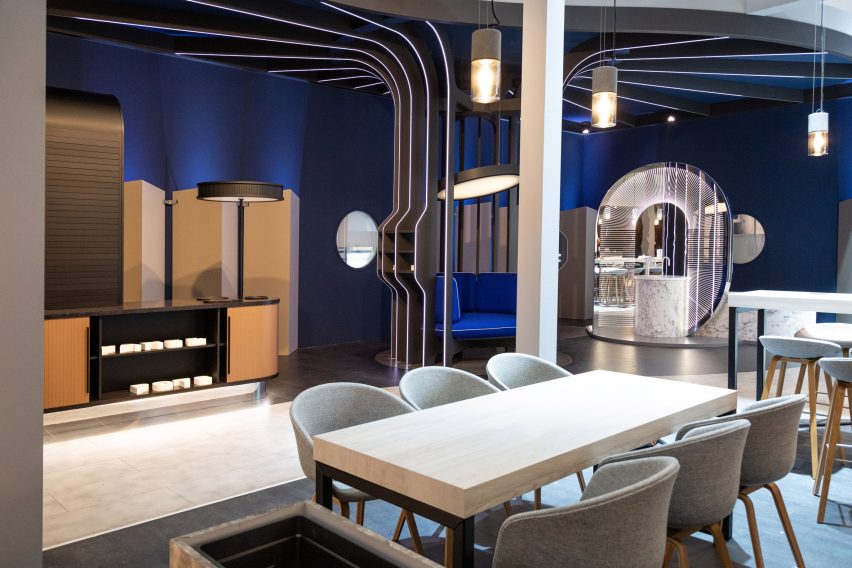
First presented at the 2019 edition of Interzum, a furniture and interiors trade fair that takes place every two years in Köln, Germany, the apartment utilises many of the manufacture's materials.
Rehau has reduced a typical kitchen, bathroom and sitting area into freestanding modules, which it likens to "sculptural objects", in an attempt to create compact living spaces suited to space-starved homes that are increasingly being built in densely populated cities.
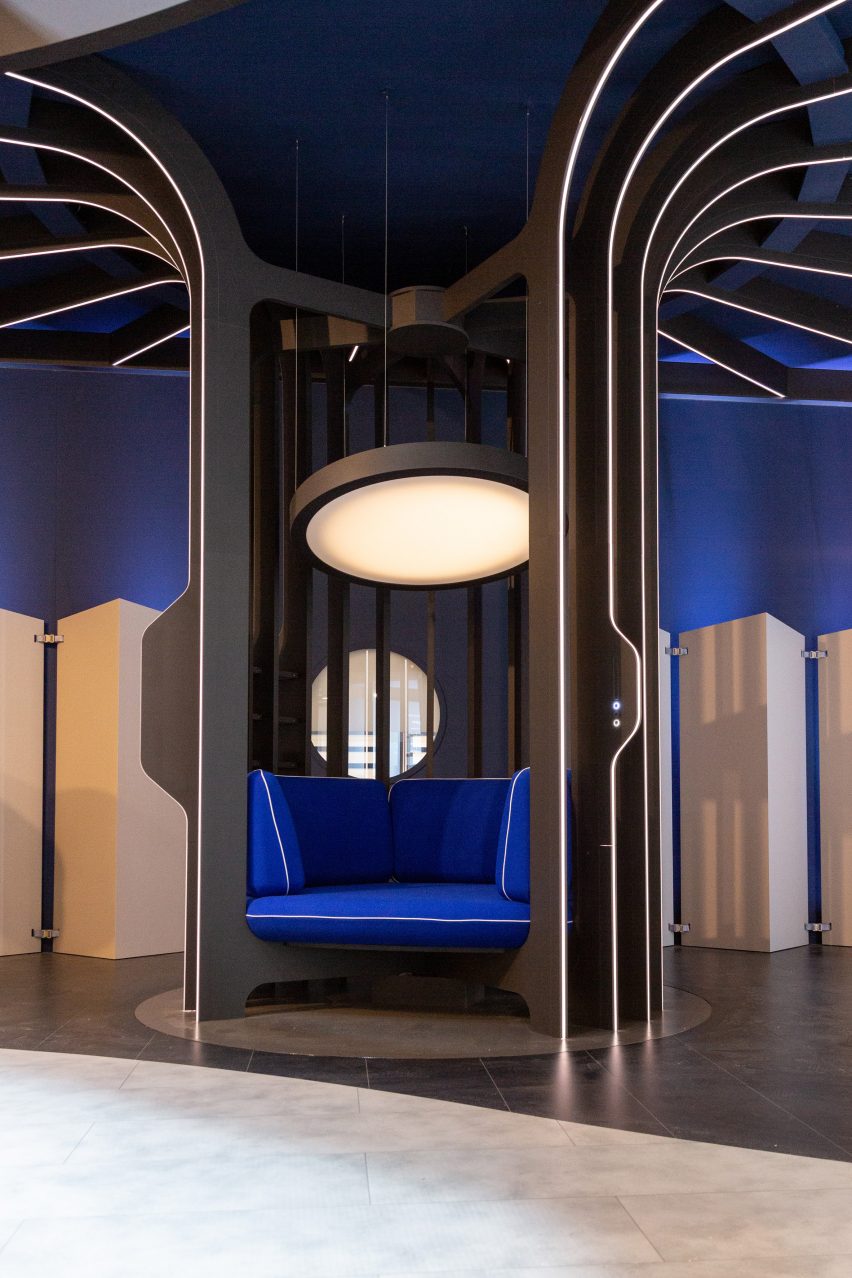
"The [modules] remain deliberately abstract in order to highlight the many technical possibilities offered by Rehau in a striking and entertaining way," explained the brand.
"Lack of space and rising living costs translate into few square meters available. This calls for a clever concept that leaves plenty of room and options to develop within limited space – without compromising on individuality."
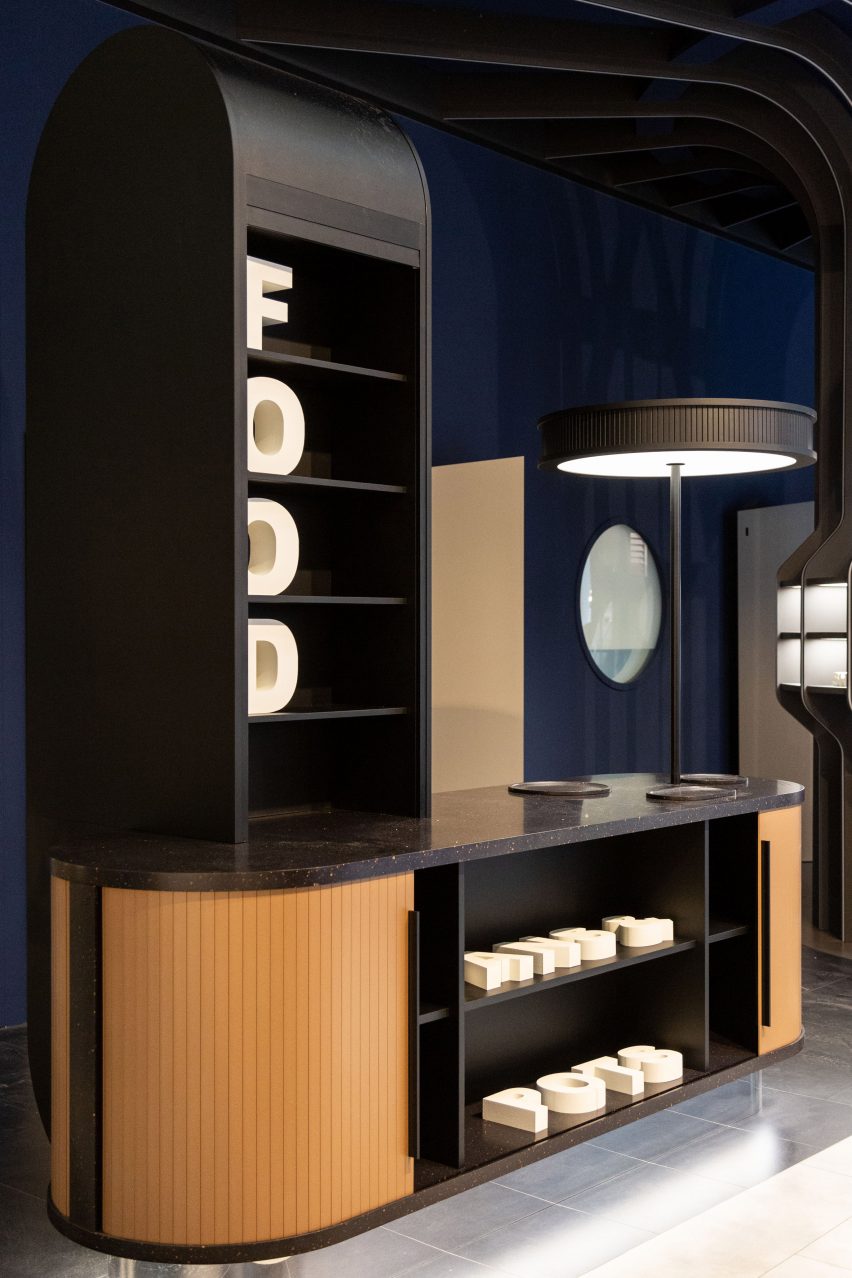
The kitchen module comprises of two curved volumes that are set at a right angle. One has been fitted with a motorised shutter door, while the other features an orange-flecked black countertop made from Rehau's Rauvisio surface material, which incorporates wireless phone charging.
Cupboards are fitted with the company's Smart Sense indicators that would let inhabitants know when food items are out of stock.
For the living room, Rehau has created a cylindrical structure that reaches up from the floor and fans out at the ceiling. It's composed of a series of black fins that are also crafted from Rauvisio.
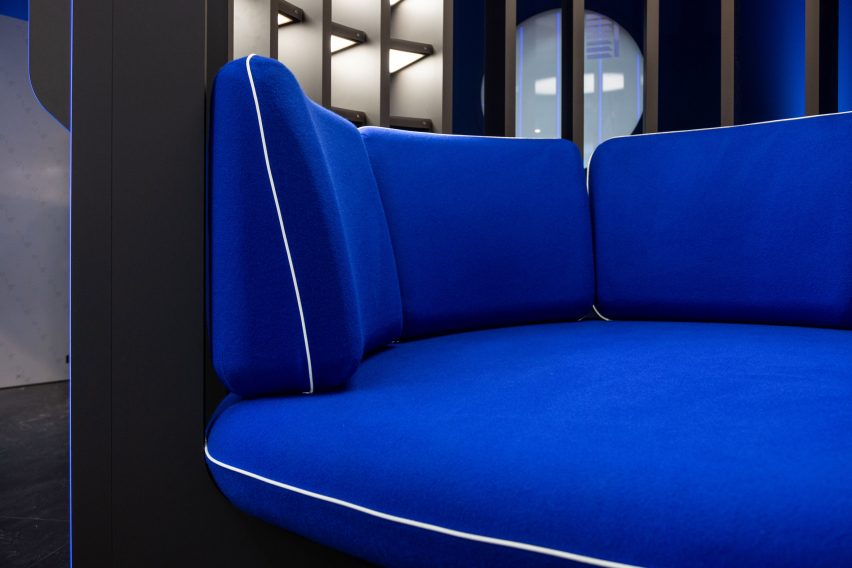
At its centre is a cobalt-blue chair with seating cushions edged in the company's translucent Raukantex piping, which has been fitted with lights to wash the user in a comforting glow.
"It's a sheltered cocoon where one can retreat and unplug," said the company.
The marble-effect iteration of the company's Rauvisio material has also been applied in the bathroom, selected for its waterproof qualities. The module also features windows fitted with Rehau's Smart Shading technology for privacy.
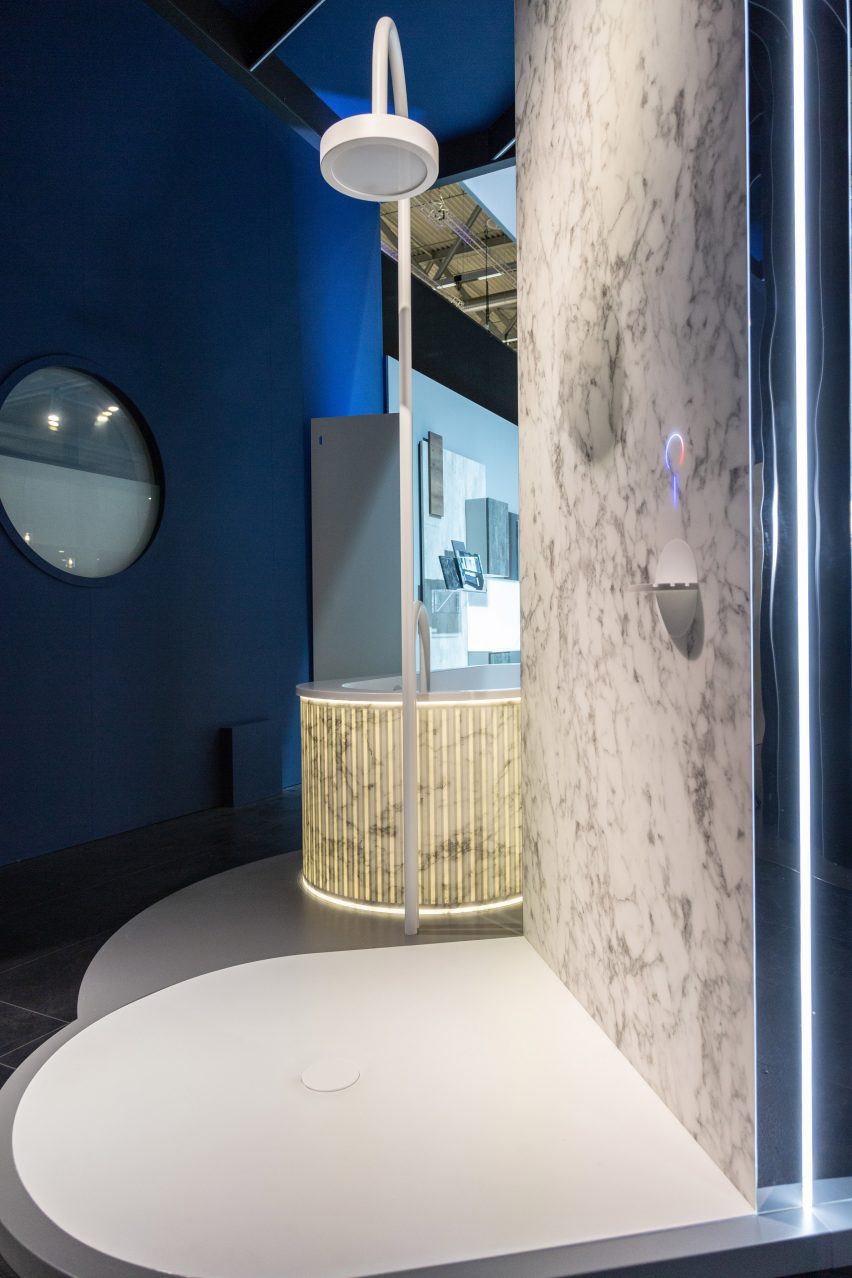
Rehau was founded in 1948 in the town of Rehau, Bavaria, where the company started by manufacturing simple products like garden hoses, and automotive components.
It joins a number of architecture practices and design studios that have envisioned different ways of living for the future.
Malka Architecture has proposed adding parasitic extensions to Paris apartment buildings, creating an insulating seal that would makes homes more energy-efficient, while Park House has imagined converting disused parking garages into flats.
To find out more about Rehau, visit its website.